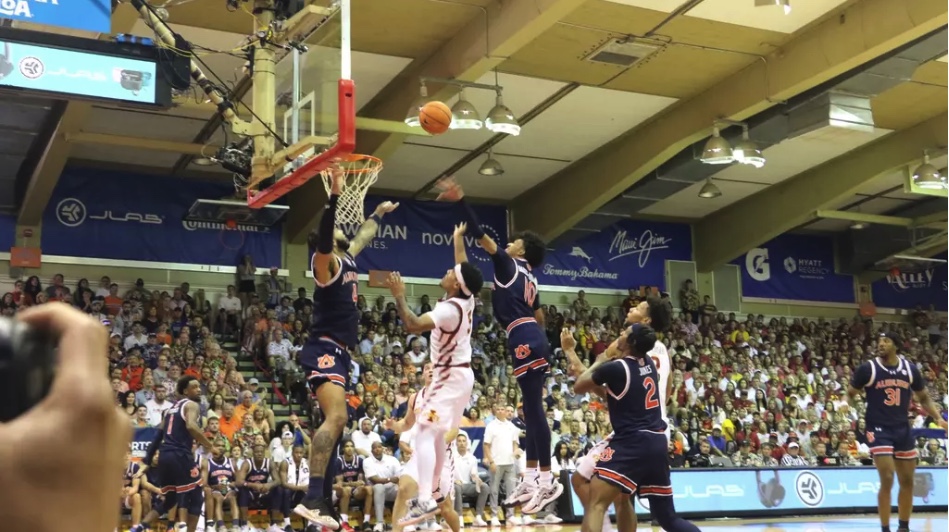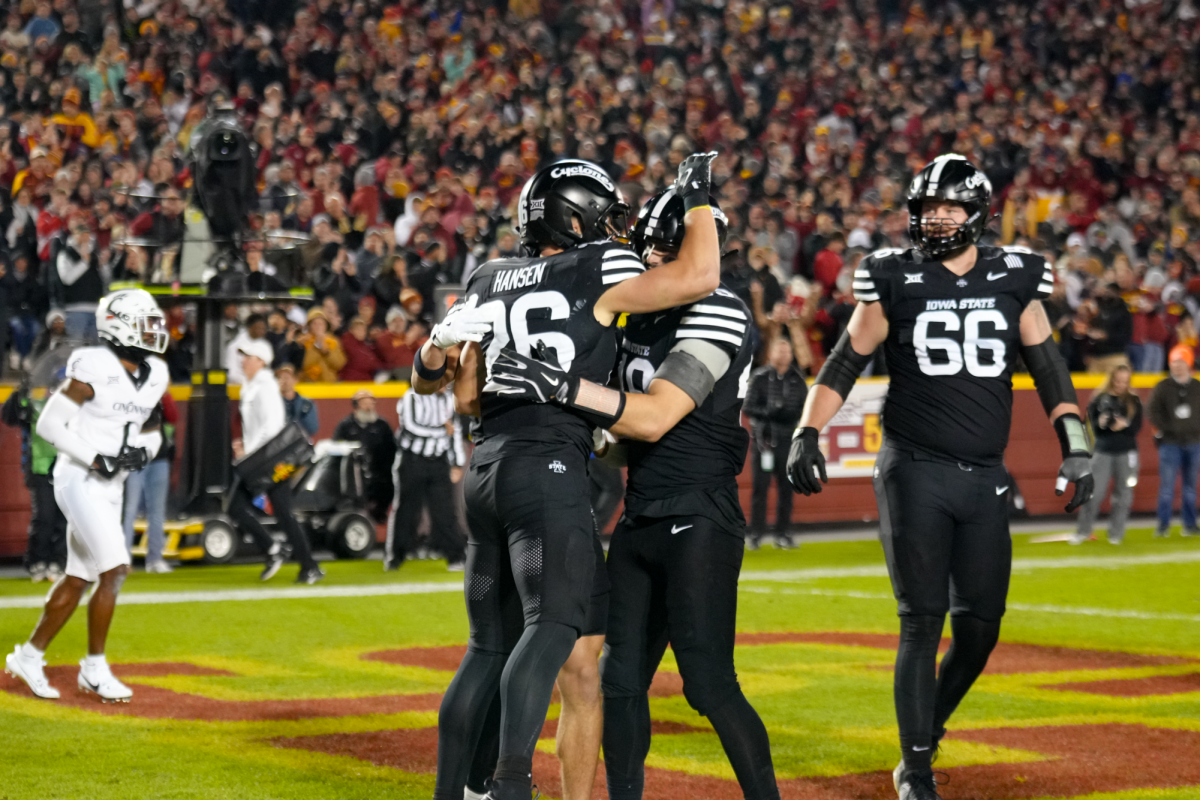COLUMN: Stereotypes cloud perceptions of campus groups
August 26, 2003
It’s official: You’re halfway done with the first week of school, and for some of you, your first week of college. But Wednesday comes to mean other things, like pitcher specials, pizza delivery promotions and for some of us, greek letter day. Members of our campus’ fraternities and sororities have casually and traditionally chosen this day to identify the organization they belong to. But we’re not just greek one day out of the week — we’re greek 365 days of the year.
We’re also not greek for just our four years of college, but for life.
I’m a fraternity brother and proud member of Iowa State’s greek community. Participation in the greek community has been a key role in my adjustment to Iowa State and my retention at the university. Had I not found my place here, I probably would have transferred to a different university. My fraternity has influenced the friends and connections I have made in college, yet not all of them have been in my fraternity. In fact, I have worked with as many non-greek students as I have with fraternity and sorority members, and my campus involvement is not limited to fraternity-related causes.
Coming from far away, I definitely wanted to find a niche for myself here in Ames. Truthfully, I wasn’t looking to join a fraternity when I came to Iowa State. But I was open-minded about the recruitment invitations I received and gave fraternities a consideration.
Although then living on campus, I found a fraternity where I felt in place.
My chapter house is more than just four walls — it’s my home. I’ve met some of my closest friends and made my most outstanding college memories after joining my fraternity.
Yet, as a member of a campus sub-community, I have experienced a feeling that I experienced during my childhood in an indigenous community. This feeling is no doubt felt by members of various other campus organizations, as women’s rights advocates are often mislabeled as lesbians, and people who display Safe Zone stickers are quickly assumed to be homosexual.
The way various ethnic and minority groups come to be stereotyped is the same way we come to judge certain campus organizations. I can pinpoint every last similarity of the prejudices as I have seen discrimination firsthand my entire life. While we often catch our faults when dealing with ethnic or cultural diversity, we often fail to see our shortcomings in avoiding any preconceptions and misjudging for populations in general.
To build a diverse and understanding campus, we have to first establish credibility in ourselves. While we acknowledge the obvious differences, such as ethnicity and gender, we should come to realize the many sub-cultural groups who also call our campus home. Many students, such as myself, find themselves in an overlap of an actual traditional minority group and another misjudged campus group. While the traditional no-no’s have been judging people because of gender or skin color, we often fail to see that we are guilty of judging people for their social class, where they live, what they study and their social lives, just to name a couple of our downfalls. We need to realize diversity and acceptance issues are broader than multiculturalism.
The easiest way to fall victim to becoming prejudiced is in a sense similar to not looking before you leap. It is difficult to make an accurate statement for a group of people when you are not one of them. It is also harsh to judge any group of people, be it on their sexual preference, religion, gender, ethnicity, nationality, by who their barber is, or if they have a greek affiliation. Even as a member of a fraternity, I cannot attest to the amount of effort and dedication that sorority members put into formal recruitment.
Our faultiness in stereotypes is destructive to our multicultural communities, and when stereotyping is against campus organizations, can hinder participation. Religious organizations are sometimes thought to only do Bible study, FFA is supposedly only for farmers and the greek community is thought to be elitist. Since I can only speak on experiences in the greek community, elitism is a harsh label for our sense of community, cooperation and cohesiveness. Looking in from the outside of any community, you don’t understand it, and you shouldn’t judge it.
Prejudices will keep you from meeting someone on your dorm floor with whom you’ll have endless late-night intellectual debates, keep you from enrolling in an interesting 8 a.m. class, or from finding the fraternity or sorority for you. Prejudices are not always meant to be malicious, but don’t let them stand in the way of your experiences.






